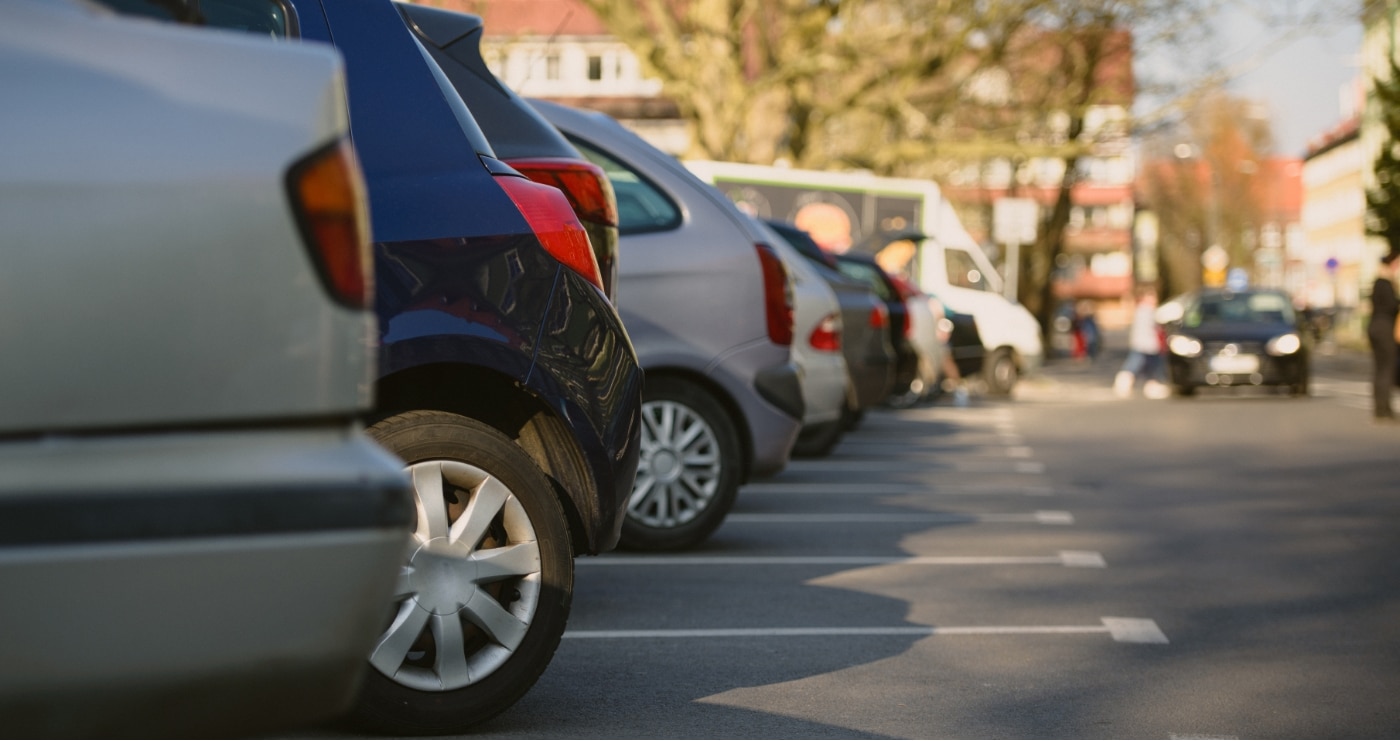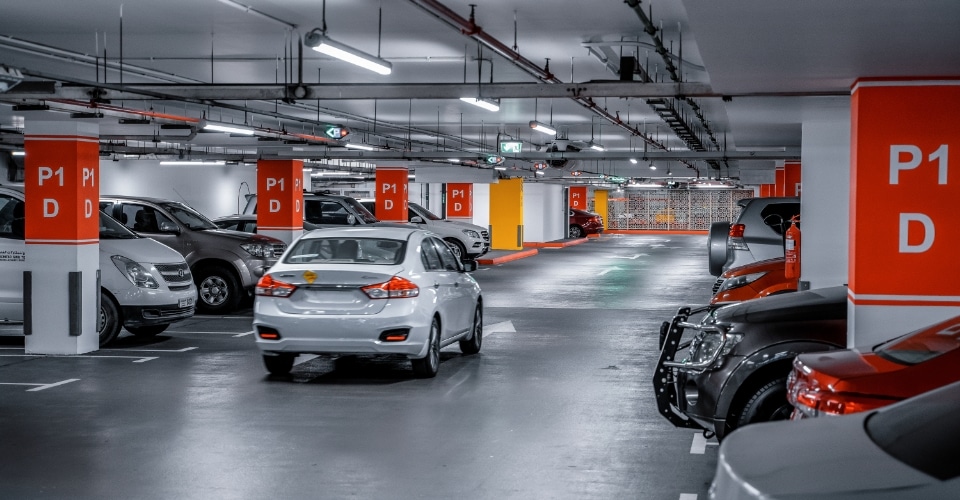
Parking lots can be dangerous places. One commonly cited estimate from the National Safety Council (as reported by CBS) suggests that around 20 percent of all car accidents occur in either a parking lot or parking garage.
You might have heard that parking lot crashes are “always 50-50,” but that’s not true. Sometimes, one driver is totally at fault. For example, if a distracted driver slams into a legally parked car, there should be very little question about who was responsible.
However, determining fault can become complicated for many reasons. In this post, we’ll look at parking lot fault determination rules, and how a car accident attorney can help you get fair and full compensation.
Just like with crashes that happen on the road, determining fault in crashes that happen in parking lots often comes down to who has the right of way. It may be helpful to start by first thinking about how parking lots are constructed.
Most parking lots have a similar set-up:

When you have the right of way, other drivers should yield and let your vehicle go first. But while you might know exactly how right of way works at an intersection, parking lot right of way rules might be more of a mystery. Here’s how they work in Kentucky and Indiana.
While the basic right of way rules are a good foundation, the unfortunate reality is that not all parking lot accidents are quite so clear-cut. Here are a few simple examples:
In some cases, the company that owns the parking lot or parking garage could share some of the fault. This might be the case if factors such as unclear signage, poor lighting, potholes, or poor design (such as blind corners) contributed to the crash.
State law in both Kentucky and Indiana is clear that you are required to report any accident, regardless of where it took place, to the police if it meets certain thresholds:
However, while you may have a requirement to report the crash, different local police departments may have their own policies about whether they will send an officer to investigate a crash that occurs on a parking lot or other private property.
Sometimes, you may not be able to get a police report from a responding officer. This doesn’t mean you won’t have a personal injury case, but it does mean that you’ll have to use other forms of evidence to prove your case or document the cause of the crash.

After a parking lot accident, you should take the same basic steps you would take for any other type of crash:
That depends on the circumstances. If the crash only resulted in damage to your vehicle, you didn’t require any medical care or time off from work, and the at-fault driver admitted responsibility, you can probably handle your insurance claim on your own.
If you’re feeling overwhelmed or just don’t know where to begin, you can download a copy of our FREE ebook, After a Car Accident: Your (Legal) Survival Guide to Handling a Property Damage Claim WITHOUT a Lawyer.
RELATED: Karl Truman Law Office Books and eBooks
However, if you have an injury claim or the at-fault driver’s insurance company is denying responsibility, we strongly encourage you to at least speak with an experienced car accident attorney as soon as possible. Injury claims are usually complex and auto insurance companies will fight them aggressively. Without strong evidence, your claim may be denied or significantly undervalued.
If you were hurt in a parking lot collision that wasn’t your fault, don’t let the insurance company pin 50 percent of the blame on you.
An experienced attorney can help you investigate the accident and gather whatever evidence might be available, including eyewitness accounts and security camera footage. They may be able to reconstruct the accident based on photos of the vehicle damage, crash site, or evidence taken directly from the scene.
Your attorney will also help ensure that you stay on top of your medical care and that all your medical expenses, lost wages, and pain and suffering are accurately accounted for when negotiating a settlement on your behalf.
The best time to contact an attorney is as soon as possible after the parking lot accident occurred. The longer you wait, the harder it may be to collect the evidence necessary to prove your case. The consultation is always free, and you only owe us if we win a recovery for you.
To request your free consultation, contact our team today or call us at (502) 222-2222.
The content provided here is for informational purposes only and should not be construed as legal advice on any subject.